
Figure 1. Photograph of a joint conservation process
Conservation science refers to studying the conservation and restoration of artifacts. Over time, cultural objects suffer environmental and natural damage (physically, chemically, and biologically) and damage caused by air pollution and people. To breathe new life into damaged artifacts and restore them to their original forms, it is necessary to find the right balance between the traditional techniques of the past and advanced methods of today. Conservation science is dedicated to the research, survey, and conservation (environmental management and restoration) of cultural heritages. The domain of conservation science expands beyond restoration (repair and reconstruction) of tangible cultural heritages such as metal, clay/ceramic, wood, ancient architecture, stone cultural properties, paintings, papers, and textiles. It also covers the study of the technological history of cultural heritages, preventive conservation, and environmental management.
The National Museum of Korea is well known for its expertise in conservation science. The museum’s activities include inviting researchers from abroad to train staff and undertaking conservation projects for artifacts excavated outside of Korea. The museum also operates overseas training and survey programs to strengthen academic exchanges with overseas museums.
- Past International Exchanges
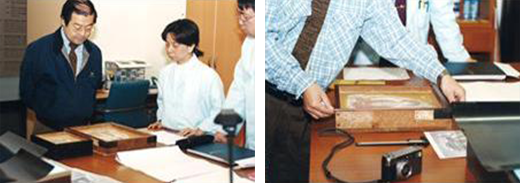
- Figure 2 Conference on conservation technologies for Central Asian fresco paintings
a. South Korea–Japan (Nara National Research Institute for Cultural Properties) 1990–1993
- Research Subject
Research on New Technologies for the Scientific Conservation of Prehistoric Cultural Properties
- Supervised by
Collaboration between the National Museum of Korea and the Nara National Research Institute for Cultural Properties
- Researchers
Sang Su Lee, Byeong Chan Ahn, In Jun Park, Hye Seon Yu
- Outcome
Published the research report on “Pressurized Desalination of Metal Artifacts” published
b. South Korea–China (Liao Ying Museum) May 28 – August 15, 1996
- Research Subject
Conservation of Waterlogged Archaeological Wood
- Supervised by
Conservation Science Team, National Museum of Korea
- Researchers
Gong Wi Lee (Liao Ying Museum); Byeong Chan Ahn, Yong Hee Lee (National Museum of Korea)
- Outcome
Acquired information on traditional conservation techniques in China and published a paper on the same subject matter
c. South Korea–Japan (National Research Institute for Cultural Properties, Tokyo) 2001-2003
- Topic
Exchange of Conservation Treatment for Central Asian Fresco Paintings
- Management
Management carried out by the Conservation Science Team of the National Museum of Korea
- Researchers
Shigo Aoki, Noriko Yamamoto, Kentaro Ohbayashi (Japan) Hyeong Tae Kang, Yong Hee Lee, Hei Sun Yu, Yeon Tae Cho, Su Cheol Kim (National Museum of Korea)
- Outcome
Published a report on surveys conducted by the Conservation Science Department (National Research Institute for Cultural Properties, Tokyo, March 2005)
- Invitational Training Programs with Overseas Researchers
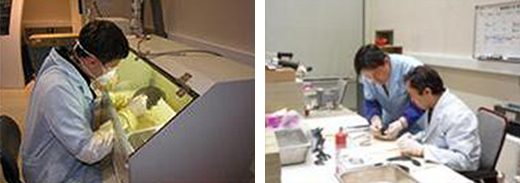
- Figure 3 A training session held at the conservation laboratory of the National Museum of Korea, led by an overseas expert
| Participating Organizations and Staff | Training Period | Description |
|---|---|---|
| National Museum of Iraq - Mohammad Salih Atia - Saad Hamza Zegher |
May 16 – June 10, 2005 | Shared field experiences related to the management of the conservative environment in museums and conservation technique |
| March–November 2007 | Metal objects conservation training | |
| Institute of History, Archaeology and Ethnography of the Peoples of the Far East, Russian Academy of Sciences - Igor Y. Buravlev | March–November 2007 | Metal objects conservation training |
| Staff, Xinjiang Institute of Cultural Relics and Archaeology, China - Huang Fan | August 2009 – July 2010 | Conservation Methods and Environments for Different Materials |
- Invitational Training Programs with Overseas Researchers
-
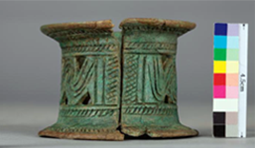
Figure 4. Bronze earrings excavated from Vietnam, after conservation
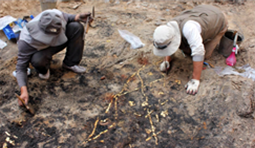
Figure 5-a. The excavation site in Mongolia, the excavation process
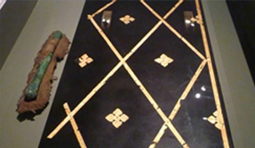
Figure 5-b. Artifacts excavated from Mongolia, after conservation
| Year | Details of Conservation | Quantity |
|---|---|---|
| 2010–2013 | Metal, wooden, clay/ceramic, and fabric artifacts excavated from Duurlig Nars, Mongolia | 502 Objects |
| 2012 | Jade stones and clay objects excavated from Duurlig Nars, Mongolia | 4 Objects |
| Bronze fishing hooks and other items excavated from Da Nang, Vietnam | 173 Objects | |
| 2014 | Bronze earrings and other items excavated from Bai Loi-Bai Coi, Vietnam | 17 Objects |
| Sun, Moon and Five Peaks, British Museum, UK | 2 Objects |
- Invitational Training Programs with Overseas Researchers

- Figure 3 A training session held at the conservation laboratory of the National Museum of Korea, led by an overseas expert
| Participating Organizations and Staff | National Museum of Iraq - Mohammad Salih Atia - Saad Hamza Zegher |
|---|---|
| Training Period | May 16 – June 10, 2005 |
| Description | Shared field experiences related to the management of the conservative environment in museums and conservation technique |
| Training Period | March–November 2007 |
| Description | Metal objects conservation training |
| Participating Organizations and Staff | Institute of History, Archaeology and Ethnography of the Peoples of the Far East, Russian Academy of Sciences - Igor Y. Buravlev |
| Training Period | June–November 2009 |
| Description | Metal objects conservation training |
| Participating Organizations and Staff | Staff, Xinjiang Institute of Cultural Relics and Archaeology, China - Huang Fan |
| Training Period | August 2009 – July 2010 |
| Description | Conservation Methods and Environments for Different Materials |
- Invitational Training Programs with Overseas Researchers
-

Figure 4. Bronze earrings excavated from Vietnam, after conservation
Figure 5-a. The excavation site in Mongolia, the excavation process
Figure 5-b. Artifacts excavated from Mongolia, after conservation
| Year | 2010–2013 |
|---|---|
| Details of Conservation | Metal, wooden, clay/ceramic, and fabric artifacts excavated from Duurlig Nars, Mongolia |
| Quantity | 502 Objects |
| Year | 2012 |
| Details of Conservation | Jade stones and clay objects excavated from Duurlig Nars, Mongolia |
| Quantity | 502 Objects |
| Details of Conservation | Bronze fishing hooks and other items excavated from Da Nang, Vietnam |
| Quantity | 173 Objects |
| Year | 2014 |
| Details of Conservation | Bronze earrings and other items excavated from Bai Loi-Bai Coi, Vietnam |
| Quantity | 17 Objects |
| Details of Conservation | Sun, Moon and Five Peaks, British Museum, UK |
| Quantity |
2 Objects |






 X
X  Facebook
Facebook